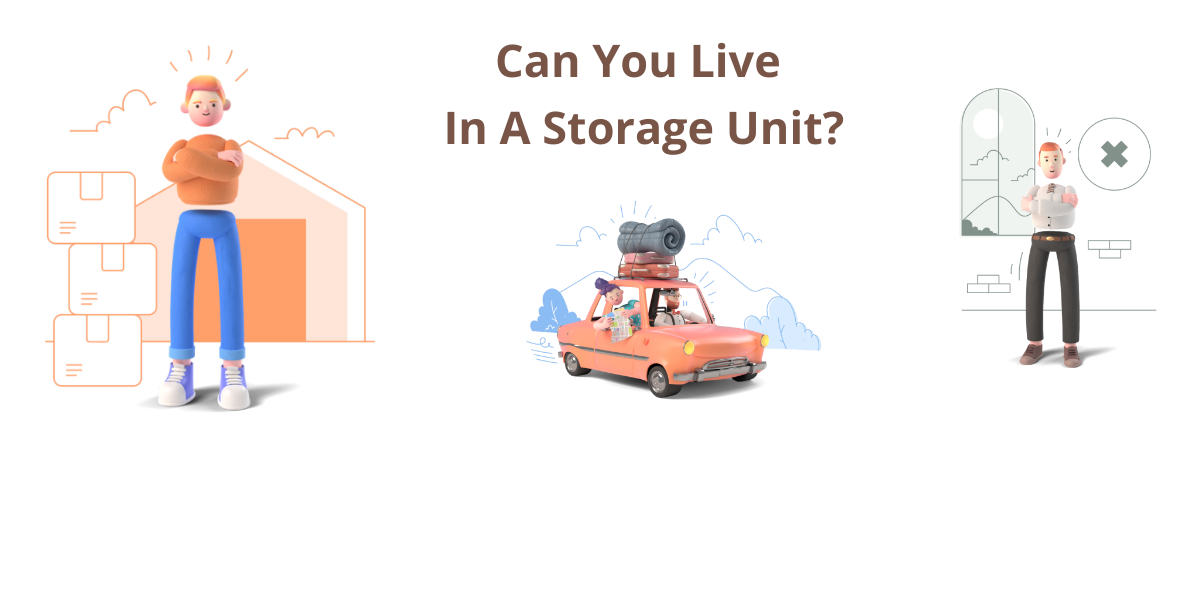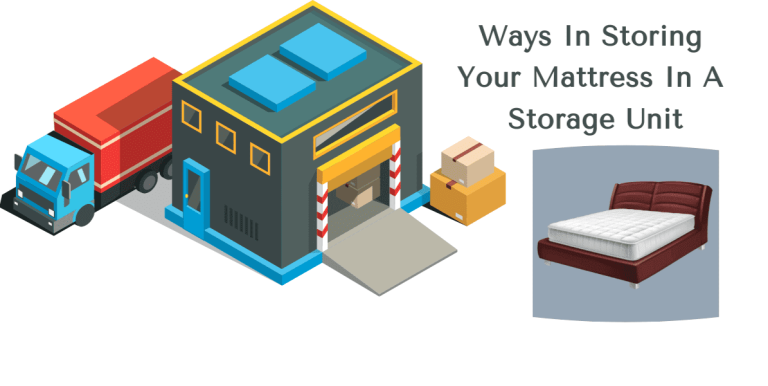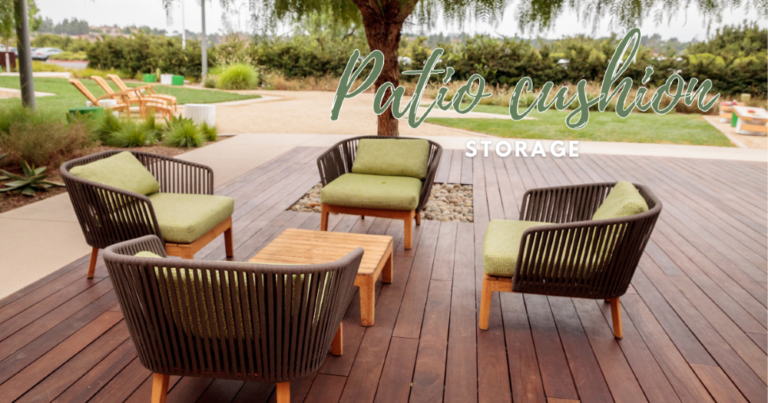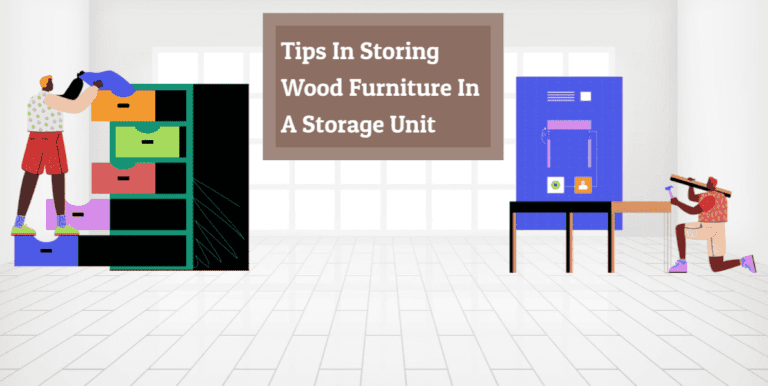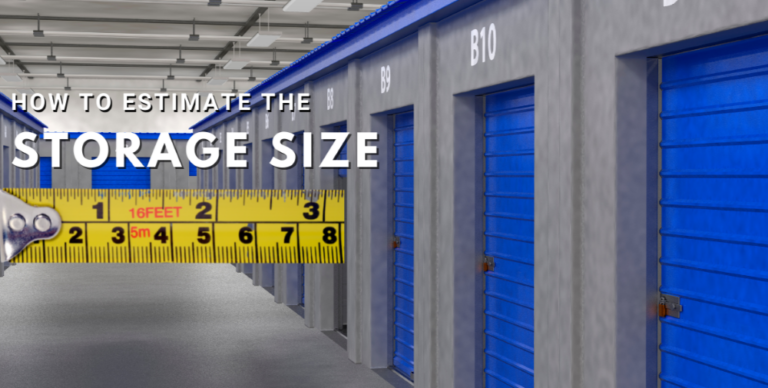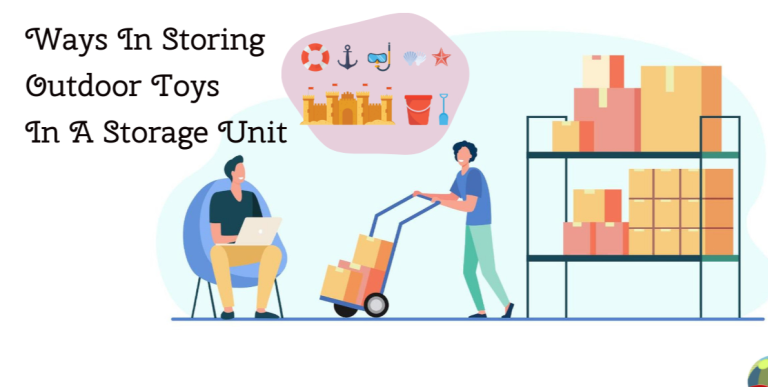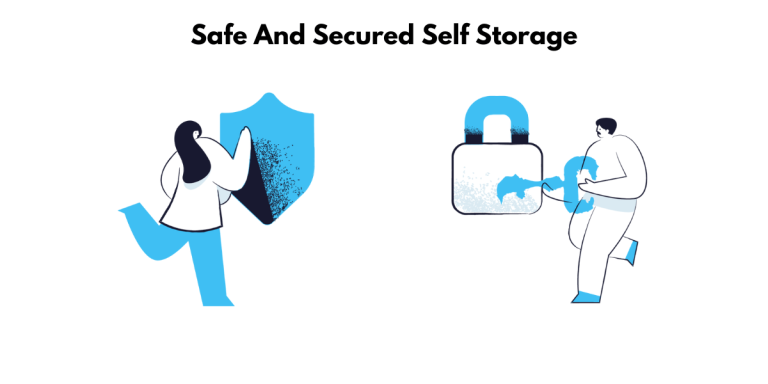Self-Storage 101: Is Living in a Storage Unit Legal?
🔊 LISTEN TO AUDIO
Can you legally live in a storage unit?
This is a question that people often ask themselves when they find an abandoned storage unit, and it’s one of the most common questions we’ve received from readers over the years.
If you’re wondering whether or not you can legally live in your storage unit, or if there are storage units you can live in, this blog post is for you. Keep reading to learn more about what living in a storage unit entails:

What is self-storage?
Self-storage is a facility where people can store their personal property. It’s often used as an alternative to traditional storage options, like a garage or attic. While living in a self storage unit might seem like an option for someone looking to save some money, it’s not always legal. Individuals or companies can rent out storage space that come in various shapes and sizes. If you need help, approach the staff at the storage facility.
Do you need insurance for a storage unit?
Self-storage insurance is a type of insurance that provides coverage for your belongings while they are stored in a self-storage unit. This insurance protects you from losses due to fire, theft, vandalism, and other risks. Many self-storage facilities require you to purchase self-storage insurance to rent a unit.
What are the benefits of self-storage?
The benefits of self-storage are numerous, including choosing your own rental unit, not having to worry about finding a place for storage during the holiday season or when moving, and storing your valuables without having to worry about security.
Some storage units are climate-controlled
Storage units can come in various shapes and sizes, but many people are unaware there is a difference between climate-controlled and non-climate-controlled self storage units. A climate-controlled storage unit will have features to help regulate the temperature, while a non-climate-controlled unit will not. This is important because an uncontrolled unit can be dangerous due to unpredictable temperature swings. Additionally, it’s worth noting that a climate-controlled storage unit would not be appropriate for someone living in self-storage full-time because the temperatures can fluctuate too much.
Storage units are safe
There are benefits to self-storage, but there are also some dangers. One of the dangers is that storage units can be unsafe. This is because they lack proper heat and air conditioning, and the temperatures inside them can fall to dangerous levels. However, climate-controlled storage units are available in some high-end facilities, which makes them safer.
Storage units are sanitary
Storage units can provide a temporary or permanent solution for those needing extra space. They are typically more affordable than renting a traditional storage unit and can be an excellent option for those unable to commit to a long-term lease. Storage units are also generally clean and well-maintained, providing peace of mind for those storing their belongings.
Storage units are affordable
Storage units are an excellent option for students because they are affordable and available in various locations. Storage units come in different sizes, and states have other laws governing them. You can usually rent storage units monthly without protection from the elements or privacy. However, living in a storage unit may be illegal, depending on your state’s laws.
Storage units are convenient
Storage units are convenient because they’re generally located close to amenities, like grocery stores and banks, and have climate control features and easy access. This makes them a desirable option for people who need to store their belongings without worrying about them being damaged or going bad.
Storage units are available in a variety of sizes
Self-storage units come in various sizes, typically determined by the needs of the renter. The most common length is the 5×5 unit, equivalent to a small closet. These units typically store seasonal items, such as holiday decorations or winter clothes. Larger units, such as 10×10 or 10×20, are also available and are often used to store furniture or other large items.
Storage units are perfect for storing a variety of items
Storage units are ideal for storing a variety of items. They come in various shapes and sizes but are usually rather plain. You can turn your storage unit into a hideaway by decorating it to your liking. You can use tape to hang posters and include comfortable lighting.
How do you find a self-storage unit?
Self-storage units are often rented out by people who have too much stuff or companies who want to store their inventory locally. The units come in various sizes and can be found in most metropolitan areas.

Determine what size storage unit you need
There are a few things to consider when determining what size storage unit you need. The type of electronics you plan to store, the noise level you are comfortable with, and any restrictions on access should all be discussed with the storage facility.
In general, you will need enough space to move around and store your items. Using organizers and taking advantage of vertical space by hanging things from the wall and ceiling can help save space.
Before signing an agreement, learn the rules about storage units so you don’t break any rules. For example, storage size is determined by several factors, including the type of electronics you plan to store, noise level expectations, and restrictions on access. Discussing these factors with the storage facility to ensure a smooth and worry-free experience is important.
Consider what type of storage unit you need
Self-storage units are a great option for those who need extra space to store their belongings. There are many things to consider when choosing a storage unit, such as size, price, and location.
Size is an important consideration when choosing a storage unit. You need to ensure that the unit is large enough to accommodate all your belongings. Price is another important consideration. Storage units can vary in price depending on their size and location. Therefore, it is important to compare prices before choosing a storage unit.
Location is another factor to consider when choosing a storage unit. You must ensure that the unit is located in a safe and convenient area. Storage units located near your home or office may be more expensive than those located farther away.
Choose a location for your storage unit
When choosing a location for your self-storage unit, it is important to consider the purpose of the unit and the climate and geographic conditions in your area. Storage facilities want to ensure the safety of all tenants and the property itself. Storage units are a good option for people facing housing insecurity. Neighbor offers storage units that, on average, are 50% less expensive than traditional storage.
Determine how long you need to rent the storage unit
Before renting a self-storage unit, it is important to understand the rules and expectations of the unit. Ensure the contract is clear about what is and is not allowed in the storage unit. Have the renter sign a document stating they understand these rules and consequences. To determine how long you need to rent the storage unit, consider how long you will need to store your belongings and whether or not you need climate-controlled storage.
Compare storage unit prices
When looking for a storage unit, it is important to compare prices to get the best deal. Storage units are available in different states, with different laws governing living in them. For example, storage unit prices are high in California. It is illegal to live in a storage unit in California. Neighbor offers storage units that are, on average, 50% less than traditional storage options.
Read reviews of storage units
Before renting a self-storage unit, it is important to read reviews to choose the right unit. Different units have different rules regarding noise levels, electronics, and hours of access. By reading reviews, you can learn about a unit’s specific restrictions and ensure that it meets your needs.
Choose a storage unit
There is no one-size-fits-all answer to choosing the right storage unit. It is important to consider your specific needs and preferences when choosing a storage unit.
Storage units can be a risk for tenants, and the staff at the facility is concerned about your safety. Storage units are usually the last resort, but communicating with the facility can avoid many problems.
If you’re facing housing insecurity, storage units are a good option. Neighbor is a great storage company because it’s 50% cheaper than traditional storage companies.
Rent the storage unit
To rent a self-storage unit, you’ll need to find a company that offers storage units. You can search online for storage units in your area or ask friends and family if they know of any good companies. Once you’ve found a few companies, call them and ask about their rates. Make sure to ask about any special promotions or discounts they may offer.
When you’re ready to rent a unit, most companies require you to sign a contract. This contract will outline the terms of your rental, including the length of time you’re renting for and the price you’ll be paying. Read the contract carefully before signing, as you must understand all the terms and conditions.
Once you’ve signed the contract, it’s time to move your belongings into the unit. Most storage units are climate-controlled, so your belongings will be protected from extreme temperatures. However, beck your belongings carefully, so they don’t get damaged in transit or while in storage.
Now that your belongings are safely stored away, it’s time to enjoy your extra space! Whether you use it for extra storage or as a secret hideaway, a self-storage unit can be a great addition to your life.
Move your belongings into the storage unit
To find a self-storage unit, start by searching online or on your local yellow pages. Once you’ve found a few storage facilities in your area, call them to inquire about prices and availability. When you’ve found a unit that meets your needs, fill out a rental agreement and pay any required deposits. To avoid problems down the road, make sure to keep your unit clean and in good condition. Finally, if you suspect your tenant is homeless, be firm but kind in offering information about local shelters and resources.
Can you live in a storage unit?
Living in a storage unit is against the law in most states. Storage facility owners often include a clause in contracts prohibiting residents from living in the units. In addition, storage facilities often have security cameras in and around the facilities, making it nearly impossible to live undetected. You could face criminal charges or civil penalties if caught living in a storage unit without permission.
Can you sleep in a storage unit?

A storage unit is not a place you can sleep in. Units are typically rented for storing items, but some people live there. If a person lives in their self-storage unit without the owner’s permission, they could be charged with trespassing and fined up to $500 or face imprisonment of up to 30 days.
It is not possible to sleep in a storage unit. Storage units are intended for people who need temporary accommodations and have violated their storage rental storage unit agreement by staying there longer than permitted. The landlord can evict the person if they remain on site of the property after being notified about this violation and any time that it is supposed to be vacated within 30 days from when the notification was given.
With permission, you can sleep in a storage unit if you’re the property manager or someone else. Otherwise, it is considered trespassing and subject to arrest.
How long can you stay in your storage unit?
Storage units are not intended for long-term habitation. If you live in your storage unit, you may violate your lease agreement and can be evicted. Also, living in a storage unit can be dangerous, especially if you have children. The risk of being caught and facing legal consequences is not worth the benefit of storing items in a storage unit.
What would happen if you lived in a storage unit?
Living in a storage unit is illegal and can have legal consequences. Most storage unit dwellers are good people, but they will eventually get caught and face eviction or jail time. Storage units are not suitable for people who are not used to uncomfortable and isolated living conditions. Depending on the location, storage unit tenants could freeze to death in winter. Storage units do not have any natural light or running water, making them extremely uncomfortable and unhealthy.
What are some alternatives to living in a self-storage unit?
Some people live in self-storage units because it is cheaper than living with family or friends. However, storage units are unsafe because they can easily be broken into. Additionally, storage units are not well equipped to be dwelling places for people. They do not offer privacy or protection from the elements. Depending on state laws, storage units may also be illegal in certain areas.
There are better alternatives to living in a storage unit, such as homeless shelters or transitional housing. You can communicate with storage facility management to find resources to help you live independently. These resources include food banks, shelters, and HHS.gov. Additionally, there are homeless shelter directories available that can help you find a place to stay.
Why is it illegal to live in a storage unit?
It is illegal to live in a storage unit for several reasons. First, it is unsafe. Storage units are not designed for human habitation and lack many features, such as running water and electricity, necessary for people to live safely. Second, there are regulations against this practice. Most storage unit rental agreements explicitly prohibit people from living in units, and the authorities often shut down units found to be inhabited. Finally, living in a storage unit is not safe for anyone. Storage units are often located in industrial areas or near high-traffic areas, which can pose serious risks to the health and safety of those who live there.
What are the risks of living in a self-storage unit?

Living in a rented self-storage unit is illegal due to safety concerns. The living conditions are unsafe for the tenant, and there is no way for them to escape if any fire or other emergency arises.
Self-storage units are not designed for permanent living. The self-storage unit is a temporary storage solution and should be used. Living in the leased space will lead to legal problems, property theft, fire hazards, etc., which could cause fines or even criminal charges if someone were injured due to negligence on behalf of the occupant.
Unfortunately, there are many dangers to living in a self-storage unit. For example, the company that manages your storage may refuse to pay you rent or decide not to renew your lease after it expires without providing a valid justification. In addition, there is no federal law regulating this industry, and state laws vary significantly; these variations can make life difficult for those who live in their units with little oversight on how they operate.
The doors lock from the outside
Storage units lock outside; if someone gets stuck inside, they won’t escape. Anyone living in a storage unit should consider this situation’s dangers and consider whether it’s worth it.
The storage facility staff will see your open or unlocked door and assume you forgot to close it or did not lock it properly. They’ll remedy the situation by closing (or popping) a new lock on your unit, leaving you trapped inside.
There are no windows or natural light
Living in a self-storage unit can be dangerous. For example, no windows, natural light, and extension cords can cause fire hazards. In addition, most storage units don’t provide electricity, so you must bring your power source if you want to live there for an extended period.
When a tenant is living on the property, they might not have natural light or windows. This could pose safety risks because of poor ventilation and potential gas leaks.
If a building does not have windows or natural light, it is considered a poor design and not fit for habitation. Commercial zones are not residential usage because they do not provide the necessary services that people need daily, such as access to sunlight and fresh air.
Storage units don’t have running water
Living in a storage unit is not legal. You should not keep food and open water sources inside your storage unit, leading to mold growth or infestations.
Storage units don’t have running water. Therefore, it would be best if you used the on-site restroom facilities in your unit and could not leave our property during business hours without permission. We will call the police to report trespassers on our property if you are found outside these hours.
Living in a self-storage unit is not legal and can lead to many issues, such as mold growth or infestations.
Cooking inside a unit is a fire hazard
You can’t cook in a storage unit for many reasons, including electrical wiring and heat storage tanks. In addition, cooking inside the unit is a fire hazard.
Extension cords create a fire hazard when not properly installed and used. In addition, a homeless man in Topeka did just that- ignited his tent on an extension cord and caused a small blaze.
It would help if you did not cook or smoke inside a storage unit. However, if you need to do this, someone else should wait outside the unit and call 911 just in case something goes wrong. Not only does it put you at risk for fire, but if no one hears your cries for help, your storage unit will become the mausoleum of whatever unfortunate soul gets stuck in there with you.
You will get caught
Living in a self-storage unit is not legal, and you could be caught. Many dangers are associated with living in a self-storage unit, including health risks and property loss.
If someone breaks into your house, they will come across footprints outside the snow and an abnormally low amount of bathroom supplies. After hours, they might also hear strange noises from different parts of the property.
Whether you’ve broken a rule or not, your self-storage unit’s security camera is always on. If the property management company is caught, they will hand the evidence to the police and take legal action against you.
If you are caught violating the terms of a lease, it will be considered an act that violates your storage unit renters rights. You may even get sued by the landlord and have to pay fines or do community service if found guilty.
If you violate the lease terms, then the landlord may evict you. In addition, if tenants violate their obligation to follow all state and federal laws, they will typically be evicted without notice or warning.
There are other options
Renting a storage unit is not illegal unless the space meets certain requirements. However, if renting an entire storage unit, it would be impossible to live there and should be done with a licensed property manager.
There are other options that the staff can consider. For example, they could visit a different facility or find another office space.
Although most facilities are liable for anything done on the property while they are present, there is no general rule that the facility must be responsible. Instead, it depends on what type of contract was signed and who entered into the agreement first.
Although, moving into a storage unit is not always necessary. You can avoid the move if you communicate with the facility and request other options to store your goods.
- Decluttering Your Home: Tips and Tricks for Every Room - May 15, 2022
- 10 Pros of Using a Self-Storage for Inventory Storage System - April 17, 2022
- Storage Solutions: 11 [Best] Bike Storage Ideas - March 12, 2022

